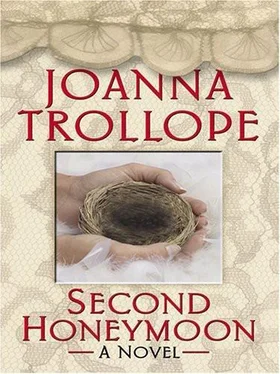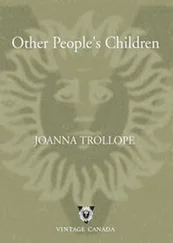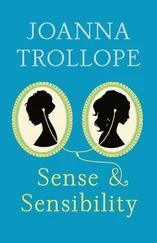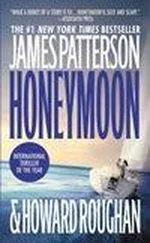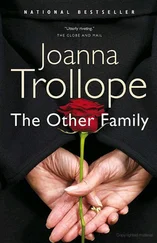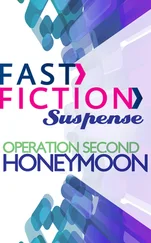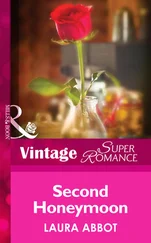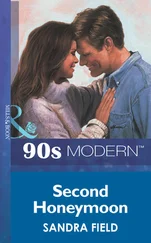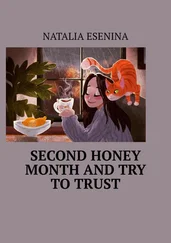Russell swam dizzily through half-sleep to consciousness.
‘No, I—’ ‘Isn’t Ben in?’ ‘No’.
‘Lazlo’s having supper with Rosa, Matt’s out somewhere with Ruth and I thought at least Ben—’
Russell began to struggle out of his armchair. ‘I think some of his stuff’s gone’. Edie looked sharply at the sofa.
‘Has it?’
Russell went across to the doorway and bent to kiss her.
‘Would you like a drink?’ She thought for a moment. ‘Not much’.
‘Why don’t you,’ Russell said, ‘why don’t you just be accommodating for once and have a drink while we talk?’ Edie hesitated.
‘Talk—’
‘Yes,’ Russell said, ‘unless you’d like to make an appointment for the purpose on Sunday?’
He moved past her and went across the hall to the kitchen.
‘Coffee? Wine? Whisky?’
Edie went slowly after him. ‘Wine perhaps—’
He glanced at her, then jerked his head towards one of the chairs by the table. ‘Sit down’. ‘I’m going to—’
‘White? Red?’
‘Anything,’ Edie said, ‘anything. I feel too stunned after this week to make decisions that size’. She pulled her arms out of her jacket and let it slump on the chair behind her. Then she leaned them on the table and let her head fall forward. ‘Matt, Rosa, Lazlo, Ruth, Vivi—’ She paused and then she said, ‘Poor Vivi’.
Russell put a glass of white wine on the table in front of her. She looked at it without enthusiasm.
‘I thought you couldn’t stand Max’.
‘I can’t. It’s not Max, it’s the situation, Vivien’s situation. Divorce and everything. She’s going to have to sell the house’.
There was a short pause and then Russell, standing at the other side of the table with the wine bottle in his hand, said with emphasis, ‘Yes’.
Slowly, Edie raised her eyes to look at him.
He said, ‘May I say something?’
‘Go on’.
‘Well,’ he said, ‘if the children are all branching out like this, if they really are going to do the things they seem to be doing, well, it would – it would be nice to help them, wouldn’t it?’
Edie’s gaze didn’t waver from his face. He put the bottle down on the table, and leaned on his hands.
He said, in a different tone, ‘I know how hard this might be for you even to contemplate, heaven knows, it isn’t very easy for me, but I’ve been thinking and the thought I’ve come up with, the thought that won’t somehow go away, is that, in order to give the children a bit of help and rearrange our own lives, we ought, really, if you think about it, to – to sell up too. We ought to sell this house’.
Edie went on looking at him.
There was a silence that seemed to go on for a disconcerting length of time, and then she said, ‘I know’.
The estate agent had said that, on the plus side, it was very rare for a house of this size and quality, and still unconverted, to come up in this particular area. However, he said – and he was quite difficult to take seriously, Edie thought, because of looking rather younger than Matthew and wearing a childishly terrible tie – the minus side, which was quite a significant minus, was that the house was so very unconverted that most buyers with the kind of cash they were envisaging would find it difficult to visualise it in an improved and modernised state.
They had both looked at him when he finished speaking as if he must be about to say more.
After a silence, he’d said, ‘You get my drift?’
Edie had looked at Russell.
Russell said politely, ‘No. Actually’.
The agent had taken a breath. Perhaps, Edie thought, we remind him of his own parents, and how he has to talk to them.
She said, to try and help him, ‘Are you saying it’s good or bad?’
He took another breath, and then he said what he had already said, only more elaborately.
‘I see,’ Russell said. ‘The house is in too bad a state to sell’.
‘No, no, it’s a very desirable house in a good area. It’s just that’ – he glanced round the kitchen – ‘it’s just that, the way it is, just now, the way it looks , because it looks so – very much of, um, well, it’s time , of course, it’s family life and all that, that the kind of purchaser we have in mind, well, we would like to have in mind for this kind of property, might, you see, have difficulty in, well, in seeing the potential’.
Edie had leaned forward.
She said, in a very kind voice, ‘You think we should tidy it up’.
The agent had stared at her with something approaching violent relief.
‘Yes’.
‘Well, that’s easy—’
‘No,’ he said, suddenly desperate again. ‘No. Not tidy up. Empty . Just – almost empty it’. He waved his arms. This room—’ He gestured out of the window. ‘That shed—’
‘Empty it—’
‘Yes’.
Edie said tolerantly, ‘You’ve watched too many television makeover programmes’.
He looked at her. He was almost glaring.
‘It’s not me,’ he said, ‘it’s them’.
And so, because of them, because of all those unknown, feared but longed-for people who would tramp round the house as if it belonged to no one but possibly to their futures, Edie was in Ben’s bedroom on a Saturday afternoon, with a roll of black bags and a bucket of water in which floated a new green pot scourer. If she looked out of the window – which she did a great deal as if trying to imprint the view from it on her mind as a kind of talisman – she could see the piles of peculiar objects that were growing at the end of the garden as Russell emptied the shed. Sometimes he stopped and gazed at the house and, if she was looking out of the window, he waved at her. She waved back, but she didn’t smile. This was, she felt, no moment, no time in their lives, for smiling.
She had expected to be taken over by emotion. She had relied upon the fact that every great event in her life so far had swept her up on a huge wave of blazing feeling, feeling so strong in essence and operatic in effect that she didn’t have to decide how to behave, she just surrendered and was swept away. But, for some reason she couldn’t fathom, this event, this business of moving house and thereby moving everything in their lives – except, Russell had pointed out, hopefully each other – wasn’t knocking her out, bowling her over. It was instead presenting her with a whole range of reactions, some of which were painful in a way she had anticipated, and some of which were extremely surprising. She could feel something close to anguish at the thought of, perhaps, not going up and down those stairs in six months’ time, but she could also feel that not having to go up and down the stairs might simultaneously spring her from years of habit which had, over time, quietly and insidiously become a prison.
‘Not an actual prison,’ she said to Russell. ‘Of course not. Just a prison of me going on and on being me’.
If she thought about people coming round the house and staring speculatively at the pale blotches on the walls that she was making by scrubbing the adhesive gum off so hard, she felt a dislike of them that almost amounted to loathing. But if, on the other hand, she turned that idea around and thought of nobody coming, nobody even wanting the house, she felt worse. She felt, she supposed, close to something Vivien had said, crying down the telephone one night after Edie had returned from her last but one night in Ghosts .
‘When I think,’ Vivien had said between sniffs, ‘when I think of Max deceiving me again, leaving me again, I feel awful. But when I think of him coming back, what it would be like if I had to have him back, I feel really, really terrible’.
Читать дальше
